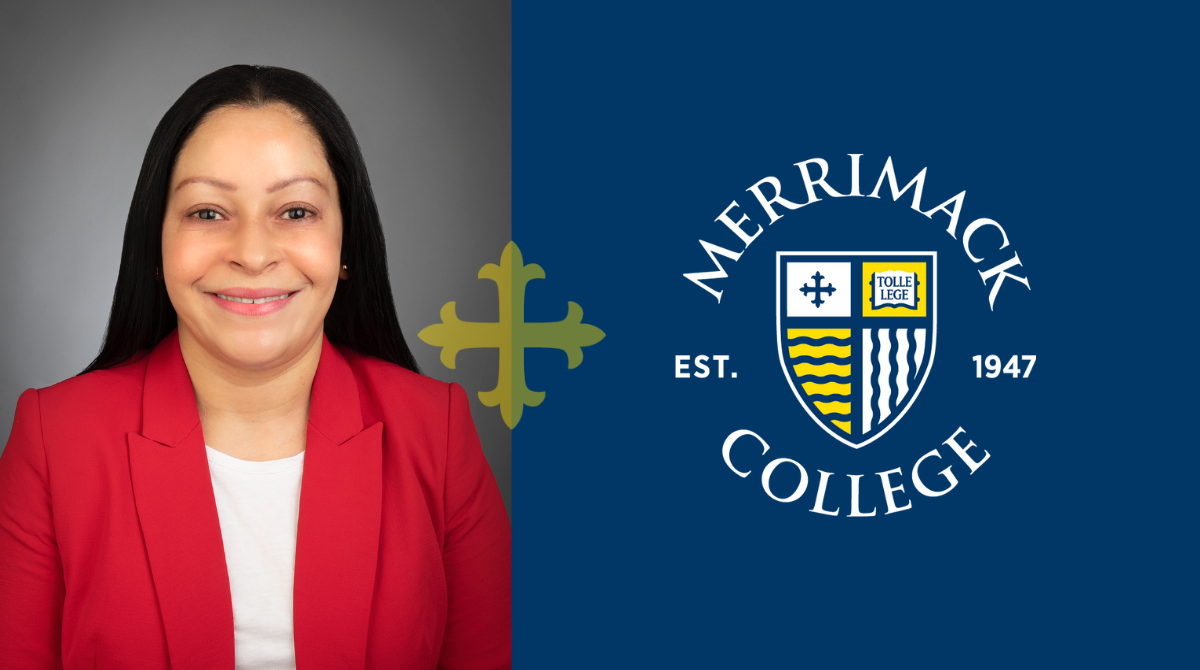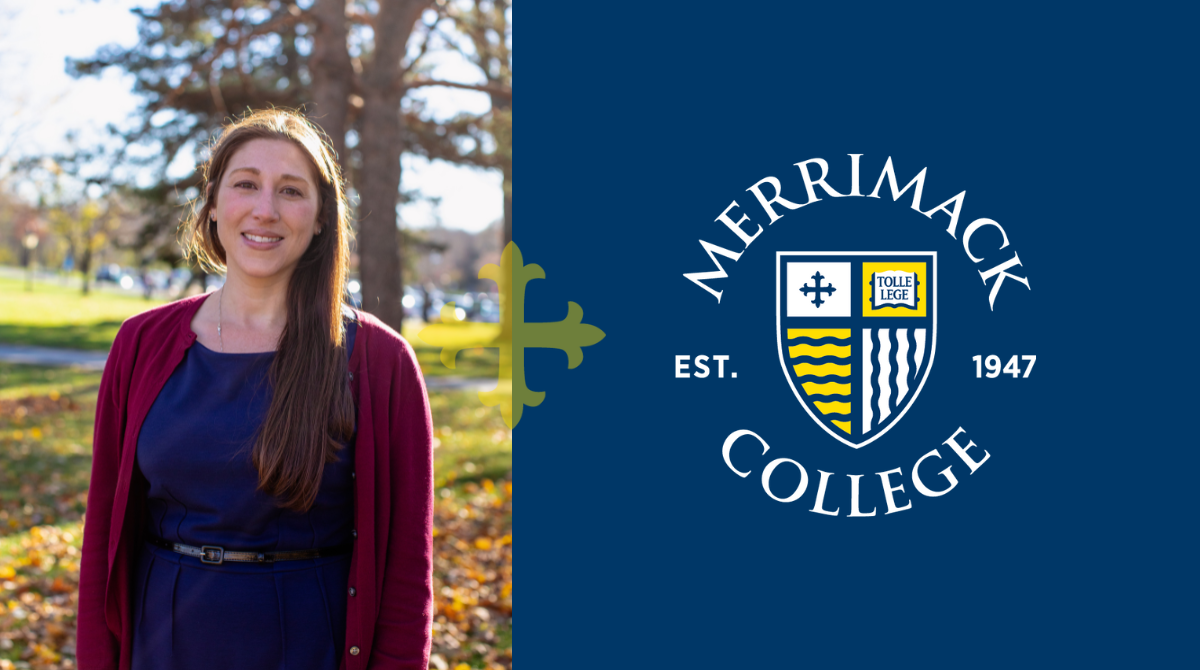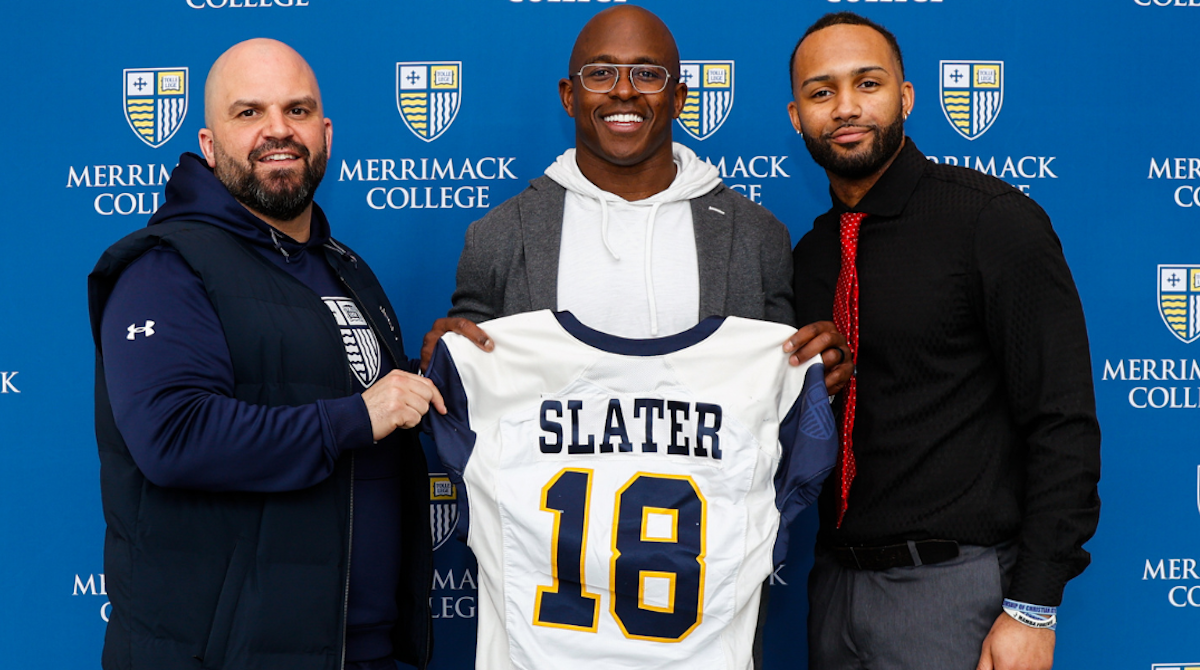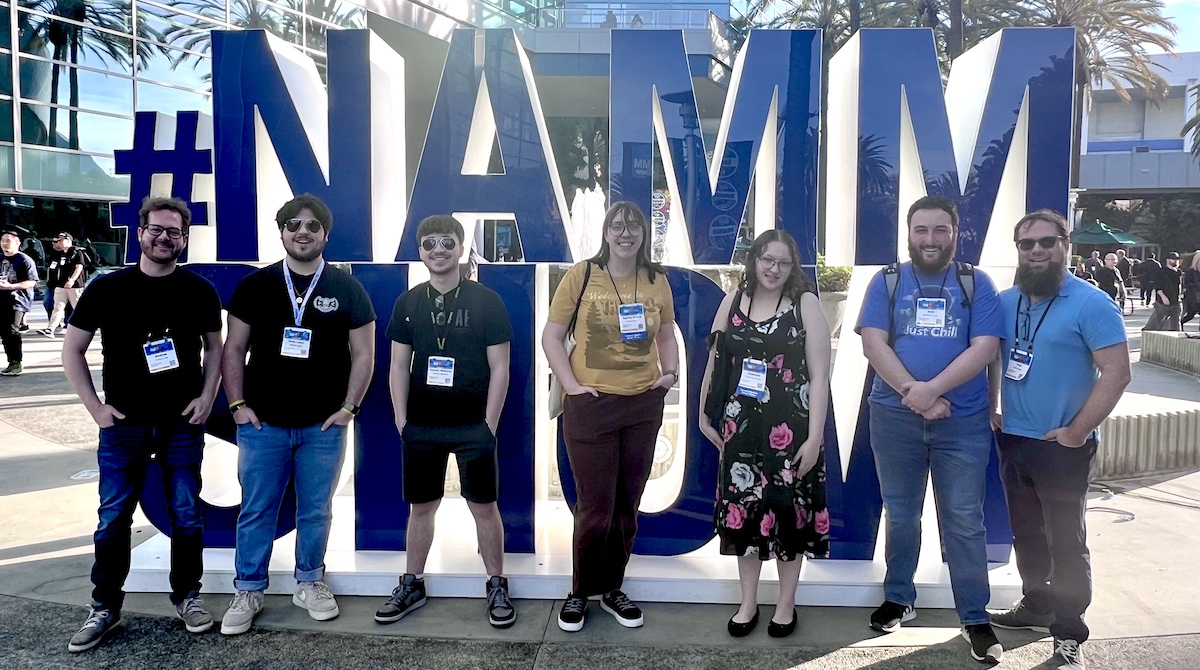For 20 years, the McQuade Library’s Tolle Lege Collection has served as the de facto archive of published works by Merrimack’s community of scholars.
This year, the library will enter into the collection another 140 published pieces written by more than 80 Merrimack faculty members, students and alumni.
These new works and the totality of Tolle Lege’s impact on research, innovation and scholarship at Merrimack College, and beyond, will be celebrated at an induction ceremony on Tuesday, May 2, at 2 p.m., at Cascia Hall.
Lyena Chavez, head librarian at McQuade Library, describes the collection as diverse, engaging publications that will inspire all to “tolle lege,” or “take up and read” in Latin. “Tolle Lege” was the command St. Augustine heard from a mysterious voice during his conversion to Christianity, which he took to mean read the first passage he came across in the Bible.
“It’s an honor and a privilege not only to host but also to curate this collection of Merrimack works,” Chavez said. “Now, in these past few years, it has been an integral part of the Research and Creative Achievement Conference. We’re encouraging faculty to let library staff know about their publications so we can better promote and track institutional scholarship.”
This year’s reception speakers include inductees Julia St. Goar of the School of Science and Engineering, Aaron Mansfield of the Girard School of Business, Ruth McKenzie of the Winston School of Education and Social Policy, Nicholas SantaBarbara of the School of Nursing and Health Sciences and Gwyne White of the School of Liberal Arts.
St. Goar said she is honored to represent the School of Science and Engineering. In her current research, St. Goar is examining how best to promote effective teaching of K-12 geometry within state standards and the Common Core.
“Teachers need training to be effective in the K-12 math classroom,” St. Goar explained. “But to train them well, we need to know how the teachers themselves learn.”
Likewise, SantaBarbara thanked the McQuade Library for recognizing his two published research papers on the use of exercise to prevent and treat chronic disease.
“There are so many wonderful faculty members here at Merrimack who are doing meaningful and clinically relevant work,” he continued. “I am hopeful that opportunities such as these will help facilitate interdisciplinary collaboration among faculty members and students.”As laid out in the Agenda for the Future, integrating research more significantly across all aspects of the College, from STEM to health sciences to liberal arts, is critical to the institution’s growth. You can learn more about Merrimack’s research endeavors here.





